Bo Burnham and Elsie Fisher Discuss the Social Media Influences that Shaped Eighth Grade
When writer-director Bo Burnham set out to make Eighth Grade, his acclaimed new account of middle-school anxiety, he had plenty of reasons to be anxious himself. He’d never directed a feature film before, and his subject was a 13-year-old girl, something he’d never been. But any apprehension was balanced by his relief at not being in front of the camera.
“I was very aware of my limitations,” Burnham told The Credits recently while in Washington with his star, Elsie Fisher. (The two were interviewed separately.) “I don’t necessarily consider myself a filmmaker. I’m ‘a’ filmmaker. I’ve made ‘a’ film.”
“I wrote this film with the intention of directing. So I tried to write to what I perceived my strengths could possibly be,” he explained. “I was confident with my perspective. I just had to figure out how to make a movie.”
Burnham, now 27, became a social-media prodigy at 16, making videos for the then-new YouTube. He followed that by working as a standup comedian, which he called “much more terrifying.” His raw material was, of course, his own life.
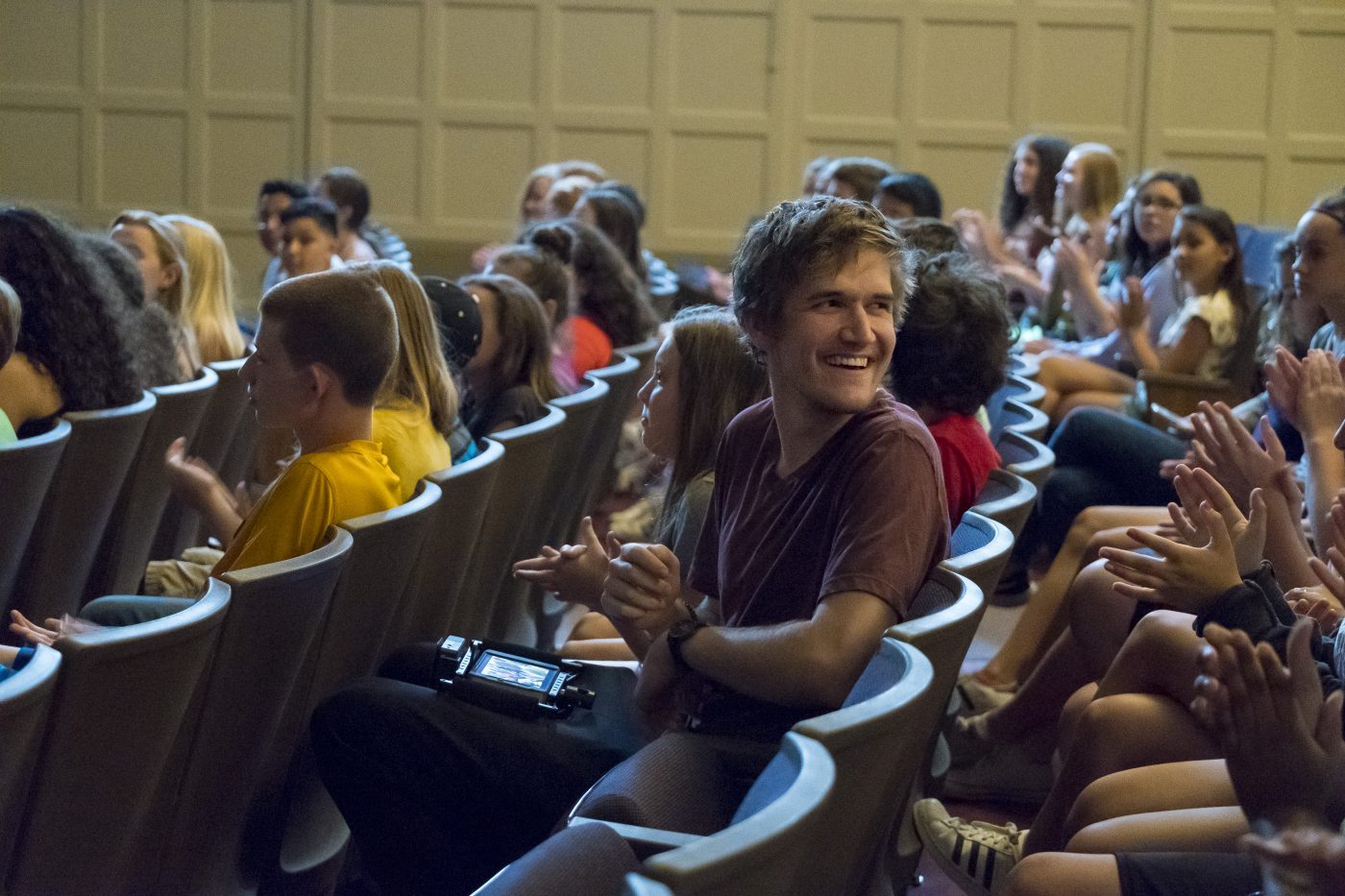
“I was just tired of myself as a subject. So being able to be behind the camera was really enjoyable,” he said. “I just didn’t have anything to say about myself, through myself, in my own voice.”
So Burnham invented Kayla, who was ultimately played by 14-year-old Fisher, a voice actress since she joined the Despicable Me series when she was 5. The goal was to speak “not through Kayla but with Kayla.” he said. “With Elsie, through Kayla, to explore a shared truth.”
Yet Eighth Grade is rooted in Burnham’s own experience of being a teenage YouTube sensation. “I tried to make a movie about the Internet, and then it became a movie about eighth grade. I definitely didn’t set out to make a movie about eighth grade.”
Ironically, he revealed, “middle school wasn’t that bad for me. My worst time was probably sophomore year of high school. This isn’t as much an exploration of my eighth-grade time as much as it is an exploration of my current time through the lens of current eighth grader.”
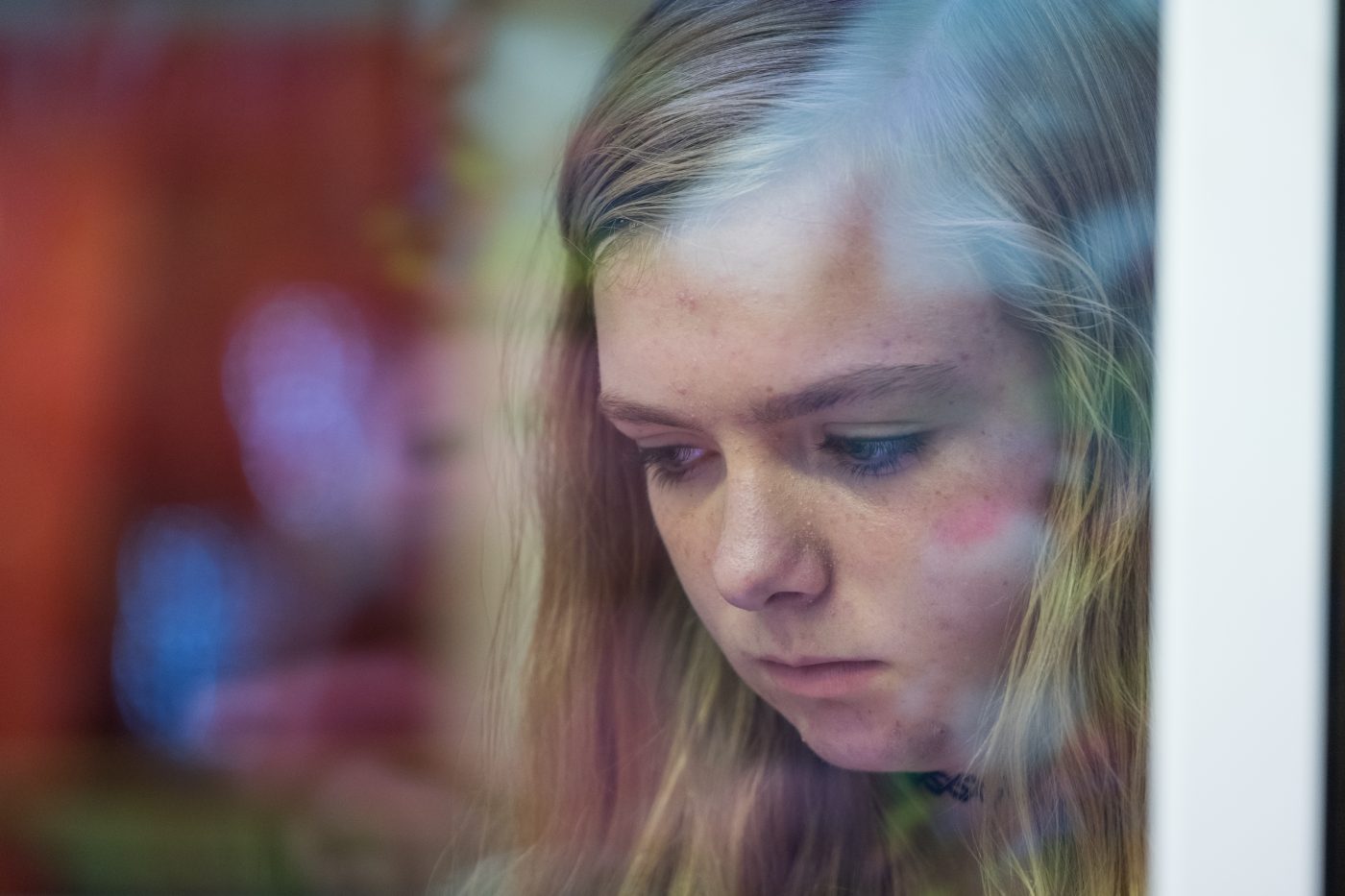
Having a 13-year-old at the center of the story was crucial, Burnham noted. “There’s a transparency to that age that I think is very beautiful. We become self-aware at that age. That’s when the self-awareness turns on.”
“All of a sudden you see yourself in the fluorescent-light reflection in the bathroom mirror and go, ‘Oh my God, I’m a human being. With all these flaws. I need to start fixing myself.’ ”
Burnham also didn’t originally plan to make his protagonist a girl, but was influenced by watching hundreds of videos in which kids discussed their lives. “The boys talked about videogames and the girls talked about their souls. I think girls at this age just run a little deeper. That’s why I can see myself in a girl at this age, more than a boy.”
“I think girls are asked more deep questions culturally,” he added. “But I do think that girls are probably more mature at that age.”
Writing Kayla rather than Karl was possibly a way “to insulate myself from nostalgia,” Burnham mused. “I couldn’t project myself onto her. I didn’t want to make a nostalgic story. I wanted to make something that felt current.”
Many of the popular online platforms have changed since he was 13, as Burnham learned when Fisher read the screenplay. “Originally in the script, all of Kayla’s social-media stuff was on Facebook,” the actress recalled with a grin. “I said to Bo, ‘No one uses Facebook anymore.’ So he switched everything to Instagram.”
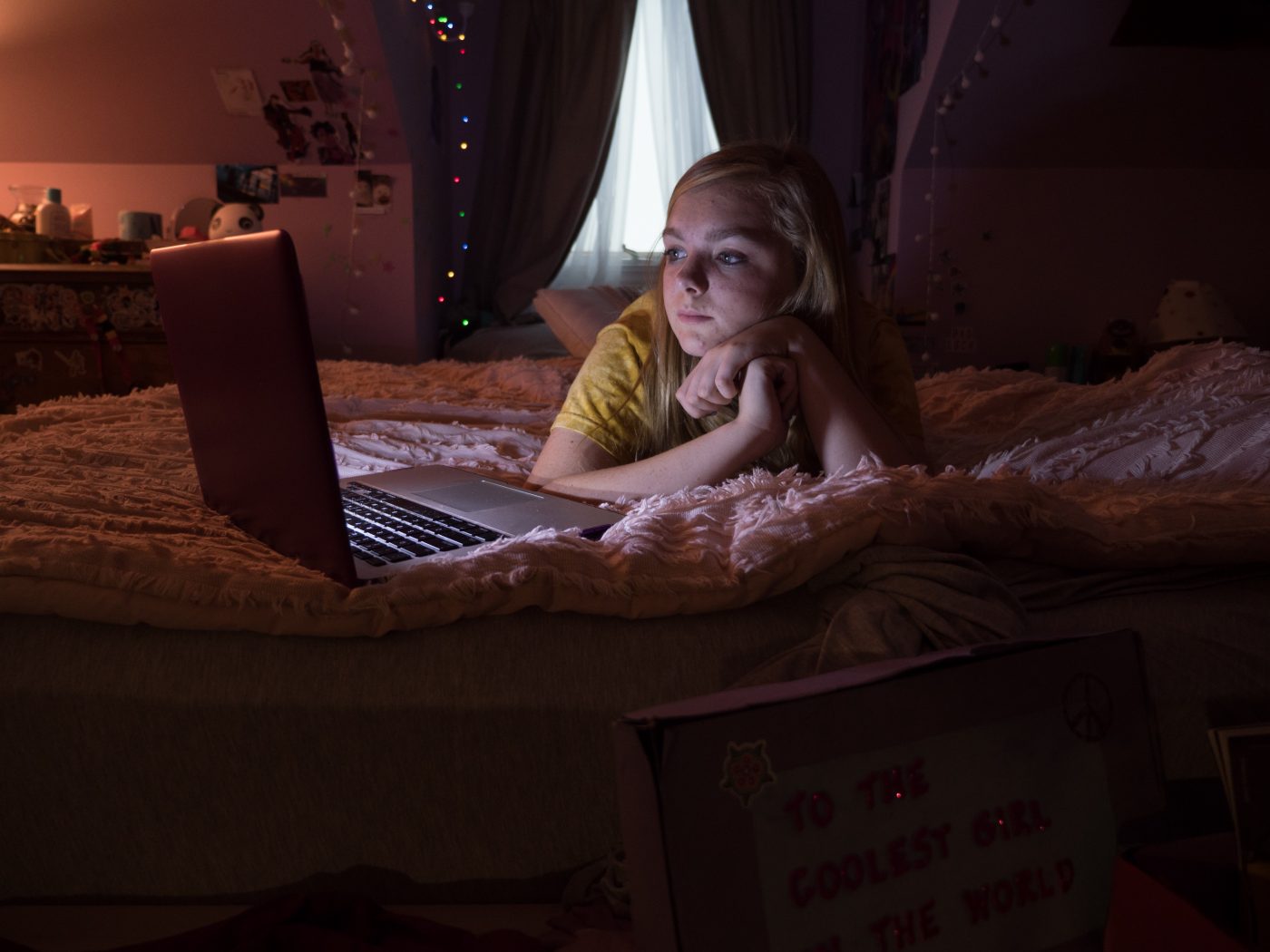
Otherwise, Fisher said, “he gets everything completely right. I think it’s because he wasn’t consciously thinking, ‘I’m writing for a 13-year-old girl who’s in middle school.’ He was just writing about a similar person to him who feels the same things that he does. Who just happens to be in different circumstances.”
Fisher doesn’t find teenagers’ Internet use as alarming as some grownups do. “It’s just a set of tools that you can use. And you can use it for either good stuff or bad stuff.”
Kayla is known as the quietest girl in her grade, yet she makes YouTube videos in which she gives advice to other teens. “I feel like the Internet is a kind of a safe haven for quiet people,” Fisher said. “It’s a place for them to express themselves. With YouTube, you can do another take. Whereas in real life, especially for anxious people, it’s just so much more high-stakes.”
As a teenager, Burnham recalled, “You feel uncomfortable and excited. You want to express yourself and you want to be left alone. You’re introverted and you’re extroverted. You’re hyper-connected and you’re lonely. You’re stimulated and you’re numb.”
This is the adolescent condition, Burnham suggested, and not specific to today’s teenagers. “People see the generation as self-obsessed, but it’s like a culturally imposed self-obsession. I think it’s a bummer to have to think about yourself. It’s not because they’re narcissistic. It’s because that’s the currency of the world: to express yourself.”
Both Burnham and Fisher extol the importance of collaboration, and each have experiences of being utterly alone as a performer: the director as a standup, and the actress as a small child in a dubbing booth.
“I wasn’t even a conscious thinking person when I did that,” Fisher said of the first Despicable Me. “I was a baby. I couldn’t read back then, because I was five years old. I’d have someone in the room, and they’d say the lines the way they need to be said, and then I would parrot off of him.”
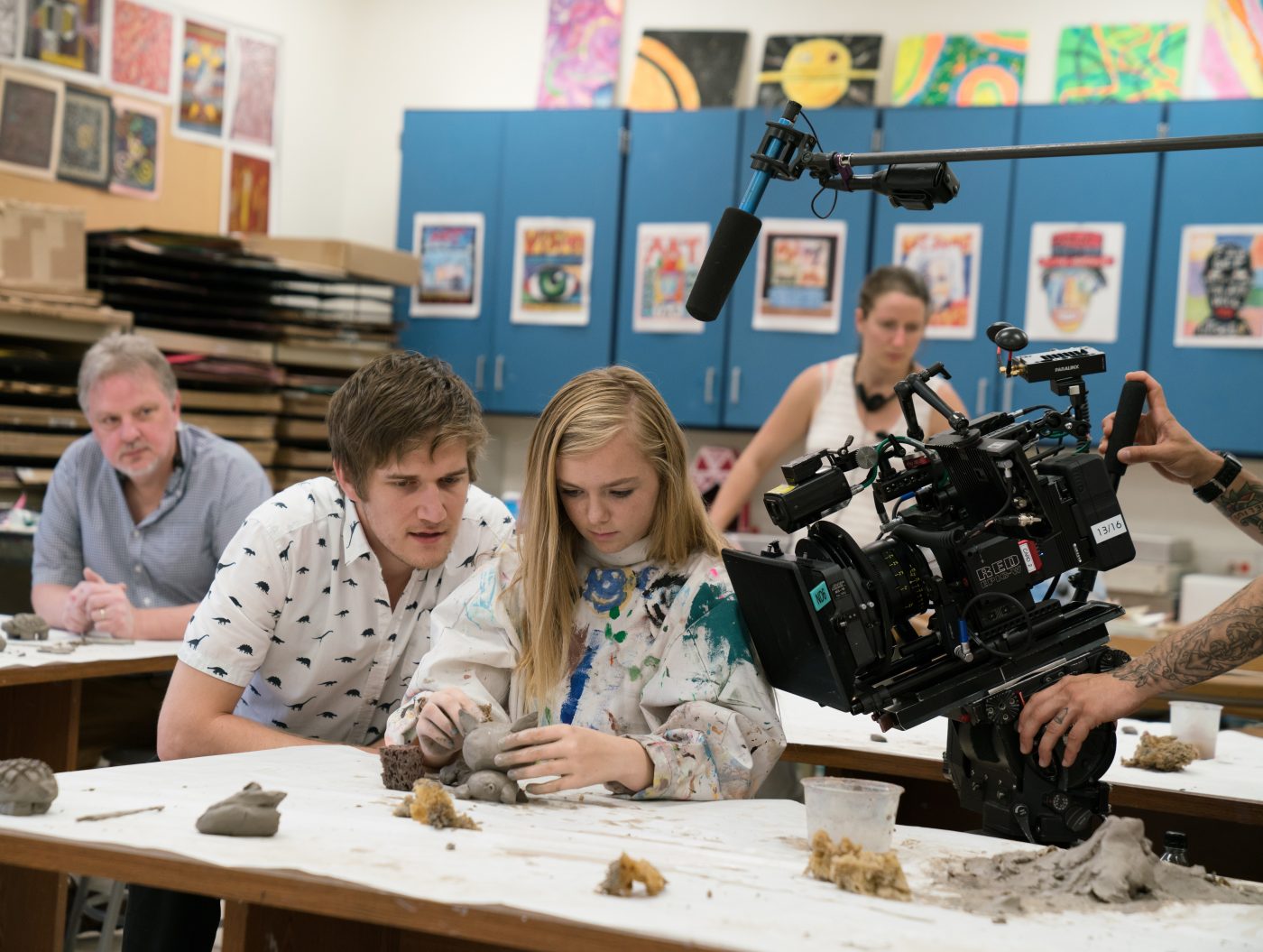
Working on Eighth Grade, she recalled, “Bo left us a lot of room to create the characters.” That included “Gucci,” Kayla’s much-discussed YouTube signoff. “That was my own nervous tic that I had on set,” and was incorporated into the story.
Before he ever met Fisher, Burnham noted, he was looking forward to adding other people’s contributions to his movie. “I knew I would have to, in order to be right. I wouldn’t write a novel about a 13-year-old girl now. But I knew that if it was a film, the areas I didn’t know, the truth that I couldn’t really provide, could be imbued by her.”
“To be able to look to other people, and work with other people and get inspiration from other people was hugely helpful,” the director said. “If you’re open to what’s coming at you, it’s almost always better than the thing you had in your head.”
One of Eight Grade’s motifs is the time capsule, and Burnham wouldn’t mind if his movie ultimately becomes one. “I don’t think it’s a problem. I’m not worried about that.”
He mentioned a scene in which Elsie talks with older kids about the significance of a now-popular app. “If in 10 years, nobody knows what Snapchat is, it doesn’t matter. That scene’s not about Snapchat. It’s about her seeing herself, and perceiving herself and trying to connect with other people.”
Burnham has no plans for another movie right now. “I need some time to sit back and clear my head. I’m not a great multi-tasker,” he said.
But his viewing habits are not those of someone who plans to churn out teen flicks. One of his inspirations is provocative French writer-director Catherine Breillat, and especially her Fat Girl. “I’m a fan of filmmakers who take childhood and young women very, very seriously. And she does that.”
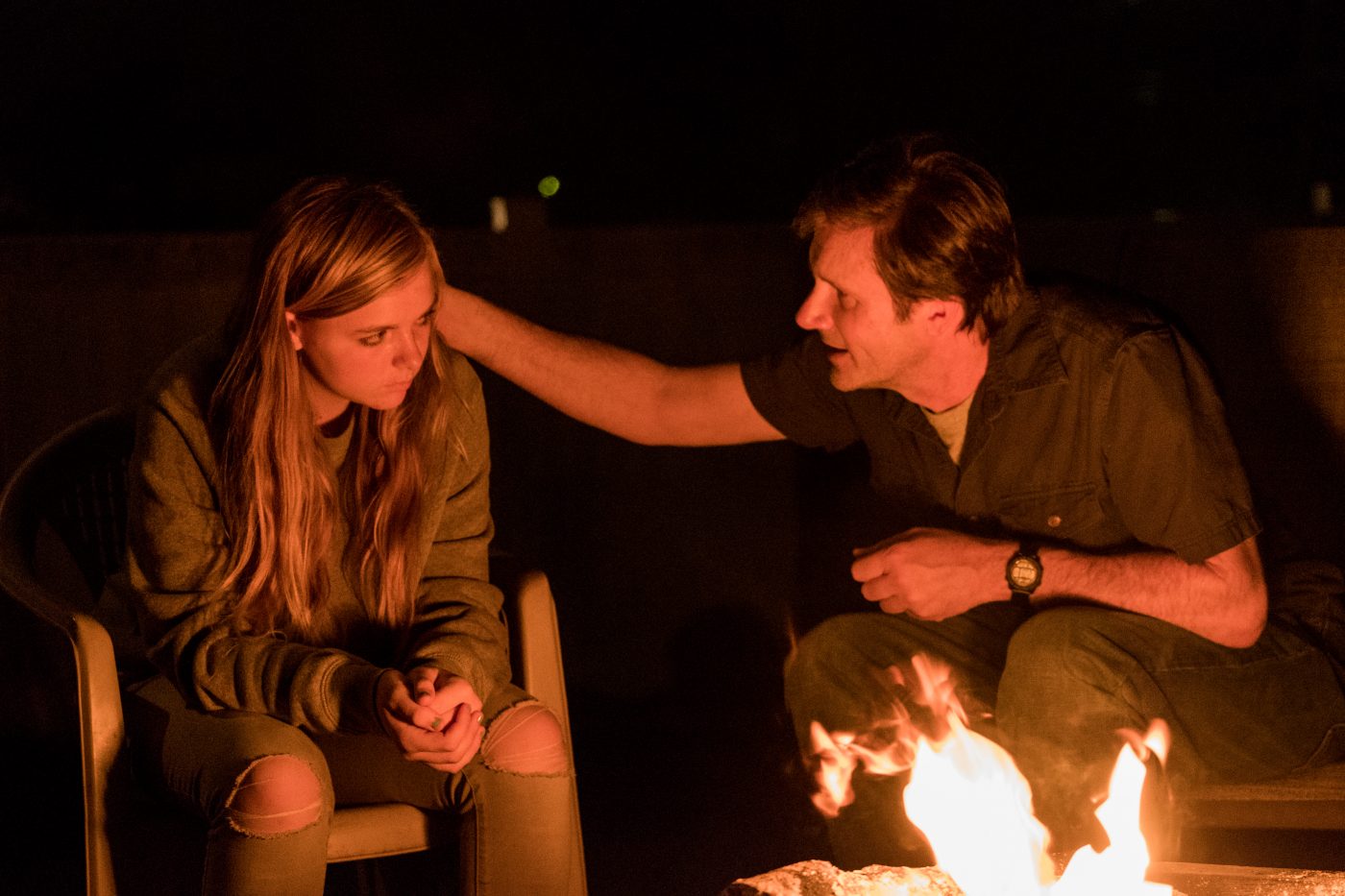
The closest Eighth Grade comes to a Breillat moment is a scene where Kayla finds herself alone in a car with an older boy who, just a minute before, seemed to be a nice guy. “It just sort of happened in the writing. I just try to approach things honestly and see what happens,” Burnham said.
“I was definitely not trying to hit thematic points. I’m just trying to write the scenes and listen to the movie.”
The way Burnham talks about writing hints at his future, which is not likely to be as a director-for-hire. “I can picture myself writing something I don’t direct,” he said with certainty. “I couldn’t picture directing something I don’t write.”
Featured Image: Bo Burnham and Elsie Fisher on the set of EIGHTH GRADE. Photo by Linda Kallerus; , courtesy of A24


